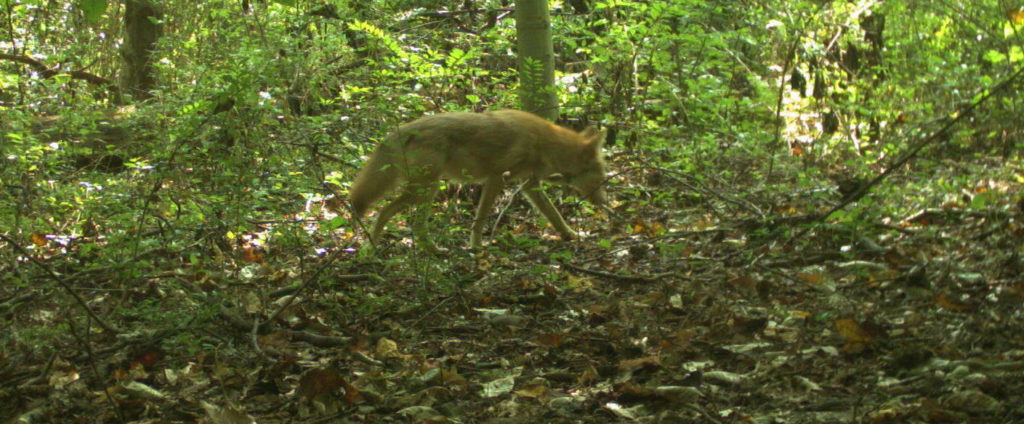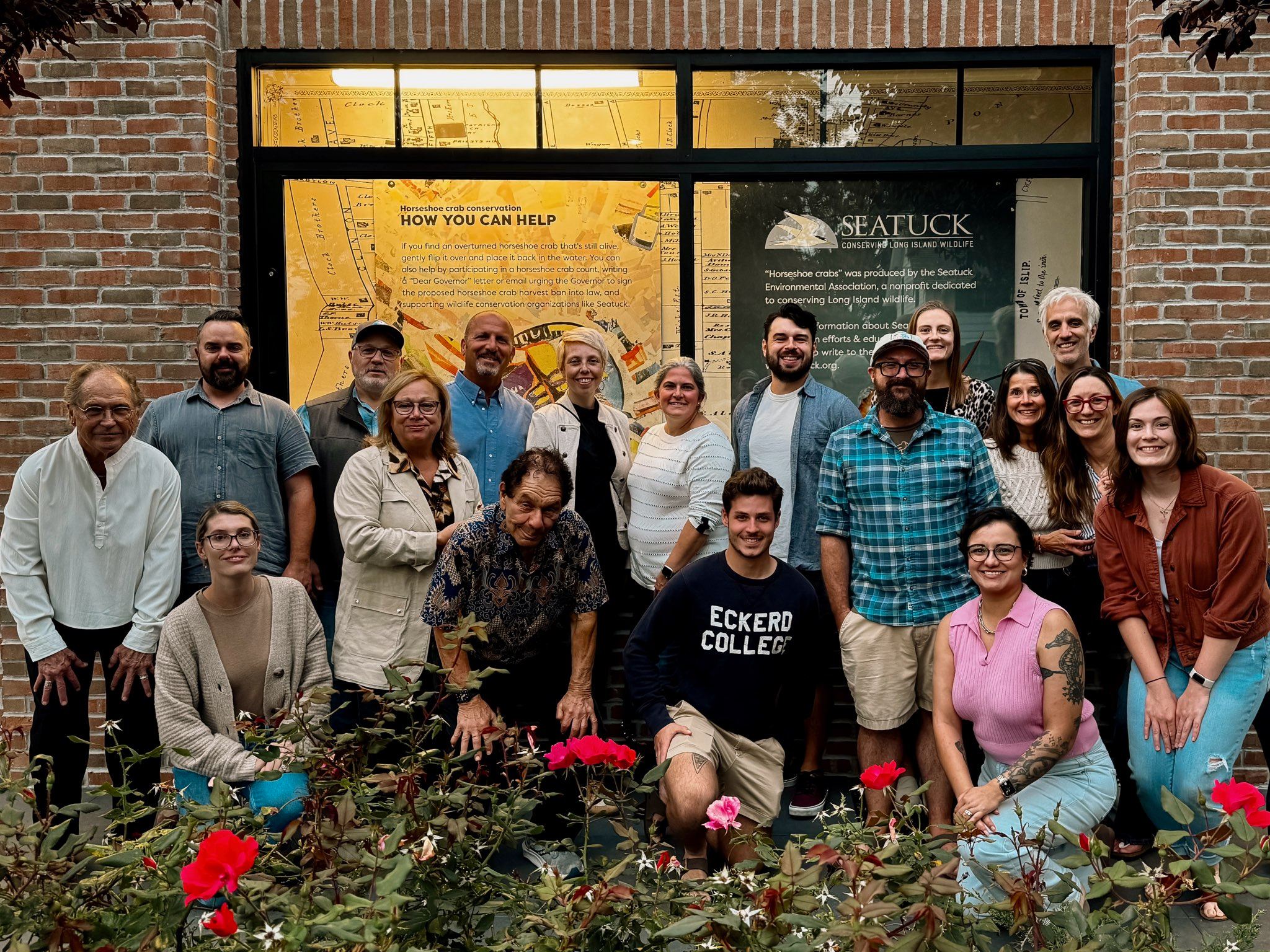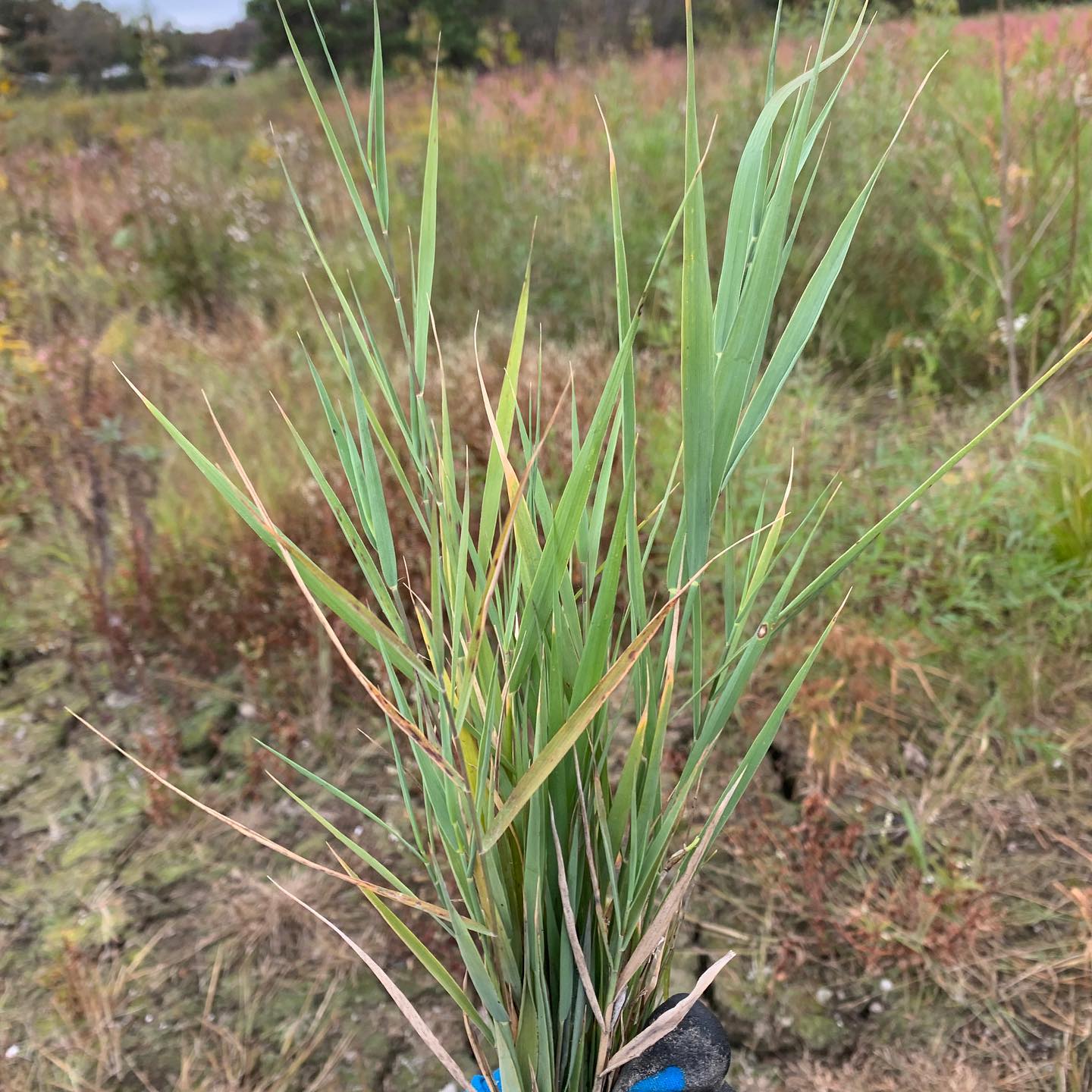PRESS RELEASE
FOR IMMEDIATE RELEASE
December 1, 2020
Contact: Arielle Santos, Policy Program Coordinator – 631-278-5601, [email protected]
Coyote Colonization of Long Island Gathers Steam
ISLIP, NY: Coyotes are no longer just coming to our region, they’re now officially home on Long Island.
These storied canines have been spotted around the island for years, but it is only now that the researchers with the Long Island Coyote Study Group have confirmed that multiple pairs of Eastern Coyotes (Canis latrans) have established home territories in northwestern Long Island.
Dr. Chris Nagy, Director of Research and Education at the Mianus River Gorge, and co-founder of the Gotham Coyote Project, has been studying coyote populations in New York City and Westchester for the past two decades and has been anticipating this expansion. “As the coyote population in the Bronx has increased, we’ve known for years that young adults have been pushed to seek out available habitat on Long Island.” Nagy, a member of the study group, explained, “We’ve seen multiple individuals moving into northern Queens over the past ten years,” he added, “it was only a matter of time before they got a foothold.”
Time will tell for sure, but it appears that 2020 will mark the year it happened. “We can’t reveal specific locations, in order to protect the animals,” said Dr. Russell Burke, Professor of Biology at Hofstra University, a co-leader of the study group. “But, for the first time, we have confirmation of multiple territorial pairs that we expect are successfully breeding.”
Once established, scientists expect the coyotes to easily integrate into the varied habitats on Long Island, as they have across the country. It is anticipated that they will fully colonize the island within a decade.
Mike Bottini, Wildlife Biologist at the Seatuck Environmental Association, and the other co-leader of the study group, has been monitoring the newly established coyotes. “Coyotes are among the most resilient and adaptable animals in nature,” Bottini said. “They keep to themselves, stay out of the way, and rely on a diversity of natural food, including rodents, birds, insects, and plants. They’ll be right at home on Long Island.” Moreover, he said, “Coyotes will replace long-lost top predators and have a positive impact on our ecological health.”
Frank Vincenti, founder of the Wild Dog Foundation, has been tracking the coyote advances to Long Island. He notes that coyotes have demonstrated across the country that they can coexist alongside humans, even in urban and suburban settings. “The key,” he said, “is that we take the necessary common-sense steps to minimize conflicts.” These include securing food sources like garbage and pet food, carefully watching small children, keeping small pets close at hand or on a leash, and loudly scaring off any coyotes that venture too close. “Coyotes have a natural aversion to humans,” Vincenti said, “it’s up to us to keep it that way.”
The New York State Department of Environmental Conservation (NYSDEC) has issued a detailed set of guidelines for avoiding conflicts.
For more information, please contact the following:
Chris Nagy – Director of Research and Education, Mianus River Gorge: [email protected], (914) 234-3455
Russell Burke – Professor of Biology, Hofstra University: [email protected], (516) 463-5521
Mike Bottini, Wildlife Biologist, Seatuck Environmental Association: [email protected], (631) 267-5228
For more information about NYSDEC’s coyote guidelines please contact Leslie Lupo, Wildlife Biologist, Bureau of Wildlife at (631) 444-0310.
###




